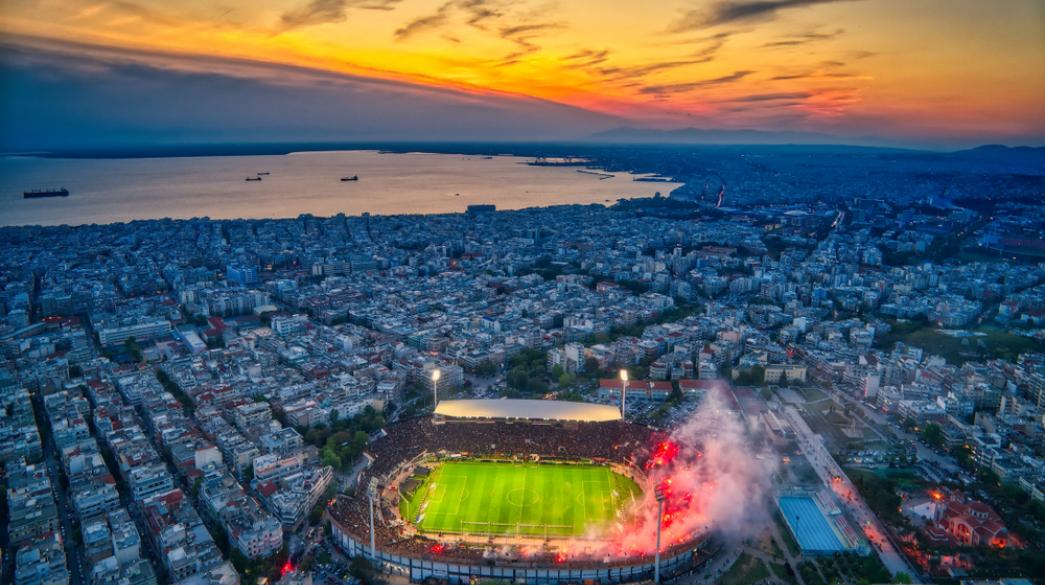The construction of PAOK's new stadium in the Alana area in Thessaloniki's Toumba will provide an opportunity for a complete urban regeneration, which will give birth to significant added value throughout the surrounding district.
Real estate officials have been noting for years how important investments in the so-called "sports real estate" are, as they provide for integrated interventions within with urban areas, thus offering the opportunity to upgrade entire neighbourhoods and generate added value in the surrounding properties. This has been the case in different international instances, with the most recent examples being the stadiums of Atletico Madrid (named Wada Metropolitano) and Tottenham in London.
The new PAOK stadium will require about 100 million euros, with the funding estimated to come from the Savvidis family, a loan and possibly state funding, via EU regional funds. Funding may also be possible through Greece's development law which supports football stadiums, and other sports facilities, thus paving the way to pitch in for the PAOK stadium.
In the meantime, the Strategic Environmental Impact Assessment was given for public consultation by the Ministry of Environment and Energy. The study is necessary, as the project envisages a Special Urban Plan (EPS) for the construction, not only of the new stadium facilities, but also for the wider urban regeneration, which will take place in the wider area.
This was the reason that the National Defense Funds donated an adjacent area, covering some 7 acres. Thus, together with the 7.6 acres of the existing stadium to be demolished, the total area to be changed is estimated to approach 15 acres.
According to the study, "in the modern era, the fan aims for an all-day experience and not just to watch a football match in the short time frame of 2 or 3 hours, in a bid to make the most of his daily stay at the stadium location. The connection of a football match with tourism is largely due to the fact that in the modern digital age, the promotion of a club reaches every corner of the earth, creating as a result fans of all nationalities, which implies the presence of many foreign friends in big matches, for example, in the context of a trip that combines the purely tourist dimension with watching a match of the visitor's favorite team."
It adds: Additionally, it is often observed, especially in the popular European clubs located in the major urban tourist centers of the continent, even the ordinary tourist seeks to watch a match taking it as part of his overall tourist experience in the city. Therefore, the emerging new global trend of "sports tourism", whether it is a fan or a tourist who just happened to be in the city on the date of a match, causes a flow of fans that exceed the narrow limits of the city and country of a club".
Thus, the goal is to upgrade the public space in a densely populated urban area of Thessaloniki, through the integration of the new stadium in such a way that not only does not act as a problem for residents but upgrades their quality of life. In this context, in addition to the use of the stadium, cultural uses are also foreseen, along with traffic interventions, in parallel with creating new parking spaces. The above translates into new public green spaces, underground parking lots and, of course, sidewalks, along with landscaping projects in the wider area.
Once the consultation period for the environmental assessment has been completed, probably within autumn, the process for the gradual approvals from relevant authorities (eg KAS) will begin. The Council of State is then required to approve it so that the relevant Presidential Decree can be drafted and signed. Originally this was forecast to have taken place by the end of 2021 but may be done slightly sooner due to interest in the project from the Prime Minister's office and the Presidential Decree may be issued by the summer of 2021. Building permits will then need to be issued, so that the project could start by autumn next year.


